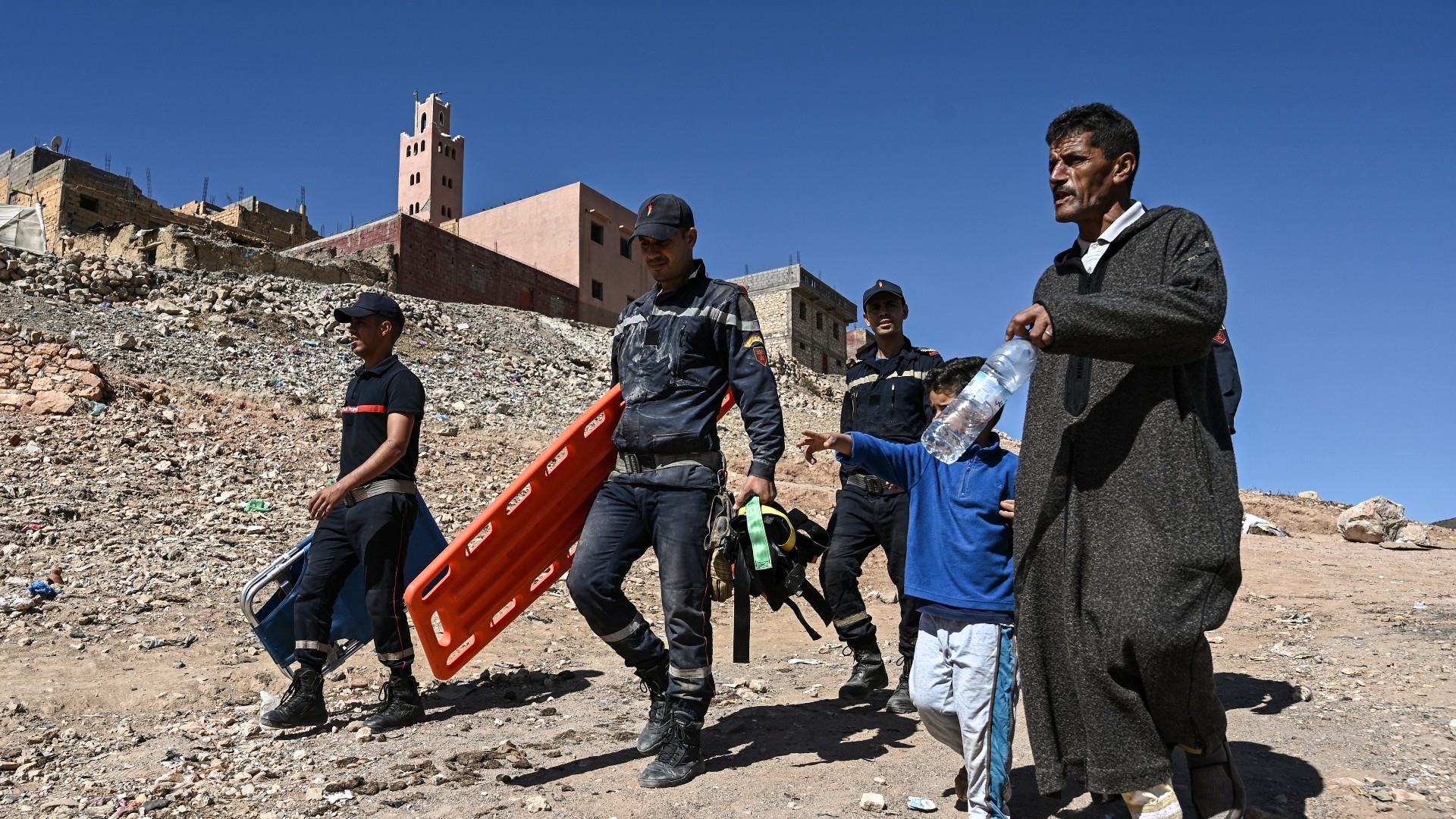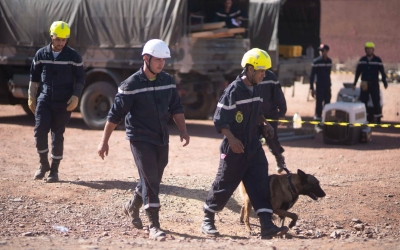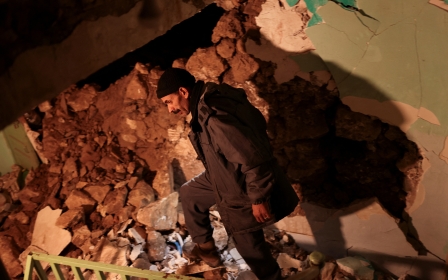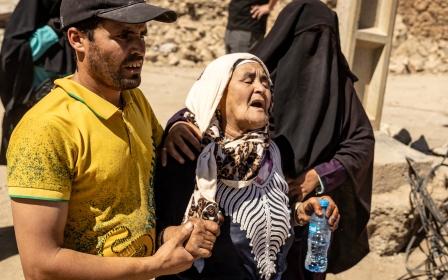Morocco yet to accept Algeria and Tunisia's earthquake expertise

On 6 February, just two hours after the earthquakes that devastated Turkey and Syria had struck, 60 members of the International Search and Rescue Advisory Group (Insarag) had responded to Turkey’s request for international help.
That night, an 89-strong team from Algeria, which included command staff and six search and rescue dogs, was on the ground in Turkey. An emergency search and rescue team from Tunisia, as well as a medical team, followed shortly after.
While the international response in Syria was complicated by the country’s civil war, an 85-member team from Algeria went on to work on rescue efforts there, as Middle Eastern expertise in the field of disaster relief was put into practice.
The rush of medical and search and rescue personnel into Turkey from across the Middle East stands in contrast to the disaster in Morocco, where authorities have so far only accepted offers of help from Qatar, the United Arab Emirates, Spain and the United Kingdom. Rabat enjoys strong bilateral relations with all four countries.
Both Algeria and Tunisia have long-established and well-regarded search and rescue teams and both countries have prepared those teams and made them available to Morocco.
New MEE newsletter: Jerusalem Dispatch
Sign up to get the latest insights and analysis on Israel-Palestine, alongside Turkey Unpacked and other MEE newsletters
Founded in 2004, the Algerian Heavy Urban Search And Rescue National Unit of Training and Intervention, which numbers 86 people, can be mobilised in two hours, has air transport and can keep itself equipped, fed and housed for 10 days, according to the UN Office for the Coordination of Humanitarian Affairs (Ocha).
In Turkey and Syria, locals praised the “really good” Algerians, who had “great equipment” and took “all the bodies out”.
The Tunisian Special Unit is a 75-person strong search and rescue unit whose staff are “very well trained in different fields and specialities”, according to Ocha.
Morocco, Tunisia and Algeria have a shared language and culture – not to mention a geographical proximity – which would significantly facilitate rescue efforts.
Having closed its airspace to all Moroccan aircraft in September 2021, Algeria has reopened it to allow humanitarian aid to pass through to its neighbour.
Relations between the two countries are dreadful – with the issue of Western Sahara at the forefront of a litany of problems between the neighbours – but there has been an outpouring of solidarity from Algerians for their “brothers” across the border.
Morocco has so far not accepted the offers of help from Algeria and Tunisia, and as Middle East Eye has reported, its response to the earthquake is not being coordinated by Ocha, which typically coordinates the international response to disasters.
While Ocha did send a disaster coordination team within 24 hours of the quake, this was at the request of the UN's own humanitarian coordinator in the country - and to assist UN staff.
Similarly, the British search and rescue team deployed to the disaster area came as a result of an offer from the UK, with Britain’s Foreign Office telling MEE that Morocco had accepted an “offer for assistance following the 6.8 magnitude earthquake”.
French help is on standby but the head of one rescue charity, Secouristes sans Frontieres, said his aid workers had not been given the go-ahead from the Moroccan government, AFP reported.
Usually, as was the case with the earthquake in Turkey, the country affected sends a warning to Ocha, which then coordinates international response efforts through Insarag and the United Nations Disaster Assessment and Coordination (Undac).
Critical time
The first 72 hours after an earthquake are considered critical for search and rescue efforts, as the survival rate falls to between 5 and 10 percent after that and most rescue efforts are usually called off after five to seven days.
The earthquake hit Morocco late on Friday and is so far known to have killed more than 2,600 people, with the number continuing to rise.
Moroccan authorities have insisted that they have not rejected any offers of help, including from former colonial power France, and sources close to Rabat have said the situation in Morocco cannot be compared to that in Turkey and Syria earlier this year.
The areas impacted in Morocco are mostly rural and hard to access, with the government referring to not creating a "bottleneck" of aid going into them.
Moroccan authorities say they want to keep control of the effort, and that "a lack of co-ordination in such cases would be counterproductive".
'Forgotten Morocco'
But Ahmed Ettanji, a Sahrawi journalist and co-founder of Equipe Media, told MEE that it was precisely the rural nature of the areas affected that was leading Moroccan authorities to ignore them.
"The situation is quite dire and the most affected are those living in what is often referred to as 'Forgotten Morocco'," said Ettanji. "It took the Moroccan government a staggering 24 hours to react to this devastating event, leaving many vulnerable communities in distress."
Ettanji said that the response underscored a class element at play, with the "oppressed classes" overlooked by authorities, as offers for help from Algeria and Tunisia went unanswered.
Middle East Eye delivers independent and unrivalled coverage and analysis of the Middle East, North Africa and beyond. To learn more about republishing this content and the associated fees, please fill out this form. More about MEE can be found here.





